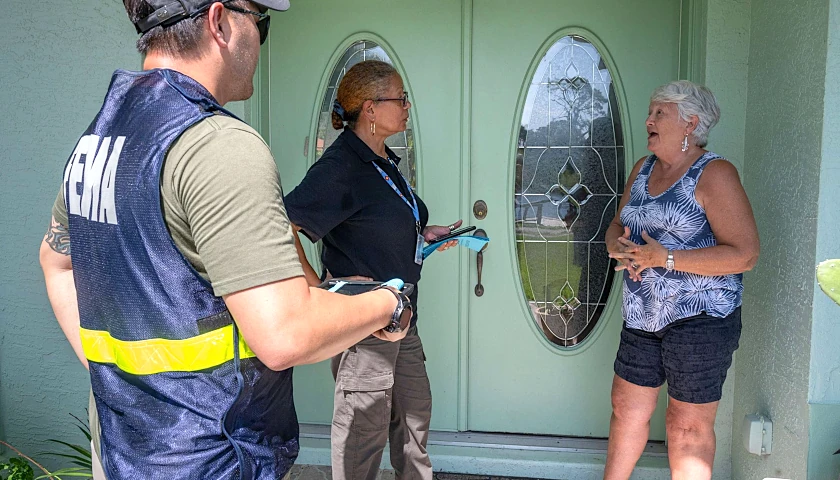U.S. Sens. Marsha Blackburn (R-TN) and Richard Blumenthal (D-CT) are expressing concerns about the inclusion of Huawei in the development of next-generation sharing technology in a band of spectrum critical to national defense.
The senators wrote a letter on the topic Wednesday to Patrick Shanahan, Acting Secretary of the Department of Defense, and Ajit Pai, Chairman of the Federal Communications Commission.
The letter was also signed by U.S. Sens. Susan Collins (R-ME), John Cornyn (R-TX), Tom Cotton (R-AR), Edward Markey (D-MA) and Dan Sullivan (R-AK).
“For years, alarm bells have been ringing over concerns about Huawei, especially in regards to national security and economic competitiveness,” Blackburn said in a press release. “Yet, as far back as 2016, and as recently as 2018, representatives from Huawei have been meeting with government officials regarding their work to develop next-generation spectrum sharing technologies between the United States Navy and the commercial sector. Spectrum sharing is a solution to spectrum management, but serious questions need to be answered regarding Huawei’s involvement.”
Blackburn also tweeted her concerns, saying, “Alarm bells are ringing about Huawei – especially in regards to national security & economic competitiveness. That’s why @SenBlumenthal & I wrote a letter to @ActingSecDef & @AjitPaiFCC voicing concerns about its inclusion in next-gen tech development. https://bit.ly/2K0nq83 ”.
Alarm bells are ringing about Huawei – especially in regards to national security & economic competitiveness. That’s why @SenBlumenthal & I wrote a letter to @ActingSecDef & @AjitPaiFCC voicing concerns about its inclusion in next-gen tech development. https://t.co/NMZ0eia7CI
— Sen. Marsha Blackburn (@MarshaBlackburn) June 6, 2019
Blumenthal said, “On a bipartisan basis, Congress has made clear that Huawei and ZTE pose an alarming and unacceptable risk to our nation’s telecommunications networks. No company that poses a threat to our national security should have a seat at the table on decisions about our critical infrastructure and communications networks. It is incumbent on the FCC and DOD to act swiftly to make sure that neither company has potential to cause us harm.”
Two weeks ago, U.S. Secretary of State Mike Pompeo accused the head of Chinese telecommunications giant Huawei Technologies of lying about his company’s relationship with the government in Beijing, The Tennessee Star reported. Pompeo said in a CNBC interview that Huawei “is tied not only to China but to the Chinese Communist Party.” He added, “The existence of those connections puts American information that crosses those networks at risk.”
A transcript of the Blackburn’s letter follows.
Dear Secretary Shanahan and Chairman Pai:
We write to bring to your attention our deep concerns regarding the inclusion of Huawei in efforts to develop a spectrum access system (SAS) and environmental sensing capability (ESC) to facilitate spectrum sharing between the United States Navy and the commercial sector in the 3500 – 3700 GHz band (3.5 band). The United States Navy utilizes the 3.5 band for systems critical to national defense.
We are alarmed that Huawei has been included in the development of SAS and ESC technology for the 3.5 band through its participation in the Wireless Innovation Forum (WInnForum). The WInnForum has been intimately involved in SAS and ESC research and development, and counts Huawei and ZTE among its members. Both companies are listed as security concerns under Section 889 of the fiscal year 2019 National Defense Authorization Act (P.L. 115-232). Moreover, representatives from Huawei are included on Ex Parte notices filed with the Federal Communications Commission when WInnForum Spectrum Sharing Committee Members updated the Commission on its work.
The Executive Order issued May 15, 2019, declares a national emergency with respect to threats against information and communications technology and services in the United States. Given that spectrum is an integral part of the information and communications landscape, and given the importance of the 3.5 band to national defense, we would like answers to the following questions: What steps are being taken to fully assess Huawei’s involvement in SAS and ESC development? What steps are being taken to mitigate Huawei’s further involvement? To what extent does Huawei’s involvement in the WInnForum provide unique knowledge of the Navy’s utilization of the 3.5 band? What are the long-term implications for use of SAS and ESC technology specifically and spectrum sharing generally?
Thank you for your attention to this matter. We look forward to your prompt responses to these questions, including, if necessary, a classified annex.
– – –
Jason M. Reynolds has more than 20 years’ experience as a journalist at outlets of all sizes.





